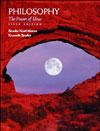 |
1 |  | 
In terms of what did G. E. Moore define goodness?
|
|  | A) | Pleasure.
|
|  | B) | Power.
|
|  | C) | Personal affection and aesthetic enjoyment.
|
|  | D) | Tricky! He claimed that it can't be defined.
|
 |
 |
2 |  | 
What do moral judgments do, according to the emotivists?
|
|  | A) | Guide conduct.
|
|  | B) | Assert facts.
|
|  | C) | Express emotion and encourage others to feel the same way.
|
|  | D) | Create value.
|
 |
 |
3 |  | 
What is not true of John Rawls's original position?
|
|  | A) | It leads to an entitlement view of justice.
|
|  | B) | It is a hypothetical, imaginary situation.
|
|  | C) | It involves dropping a veil of ignorance.
|
|  | D) | It assumes that people are rational and self-interested.
|
 |
 |
4 |  | 
What is Rawls's position on the just distribution of income and wealth in a society?
|
|  | A) | It should be unequal unless a more equal distribution would benefit everyone.
|
|  | B) | It should be equal unless an unequal distribution would benefit everyone.
|
|  | C) | It should always be equal.
|
|  | D) | It should be based on effort, talent, and accomplishments.
|
 |
 |
5 |  | 
Why does Robert Nozick believe that any state that goes beyond the minimal state is unjust?
|
|  | A) | Such a state fails to achieve communitarian consensus on the good.
|
|  | B) | Such a state necessarily involves redistributive taxation that violates persons' natural entitlement rights.
|
|  | C) | Such a state would not be agreed to by rational, self-interested individuals in a fair initial bargaining situation.
|
|  | D) | This is a trick question since Nozick is an anarchist libertarian who doesn't think that any state is just.
|
 |
 |
6 |  | 
What is a thick moral argument, for Michael Walzer?
|
|  | A) | Moral argument that takes into account the actual, particular details of the association or culture involved.
|
|  | B) | Moral argument that focuses on abstract, universal questions of value, obligation, and justice.
|
|  | C) | Moral argument that is dense and hard to understand.
|
|  | D) | Systematic rather than piecemeal moral argument.
|
 |
 |
7 |  | 
Which of the following is the political philosophy based on respect for established institutions and traditions?
|
|  | A) | conservatism
|
|  | B) | communism
|
|  | C) | facism
|
|  | D) | socialism
|
 |
 |
8 |  | 
The attempt to understand the sources and criteria of moral value judgments is known as: |
|  | A) | metaethics |
|  | B) | normative ethics |
|  | C) | deontological ethics |
|  | D) | prima facie duties |
 |
 |
9 |  | 
Which of the following is not one of the three main philosophical causes looked at when studying ecological crises?
|
|  | A) | anthropocentrism
|
|  | B) | democratic socialism
|
|  | C) | patriarchalism
|
|  | D) | authoritarian social structures
|
 |
 |
10 |  | 
What is the name of the influential publication by John Rawls?
|
|  | A) | Killing and Starving to Death
|
|  | B) | Anarchy, State, and Utopia
|
|  | C) | A Theory of Justice
|
|  | D) | After Virtue
|
 |



 2002 McGraw-Hill Higher Education
2002 McGraw-Hill Higher Education